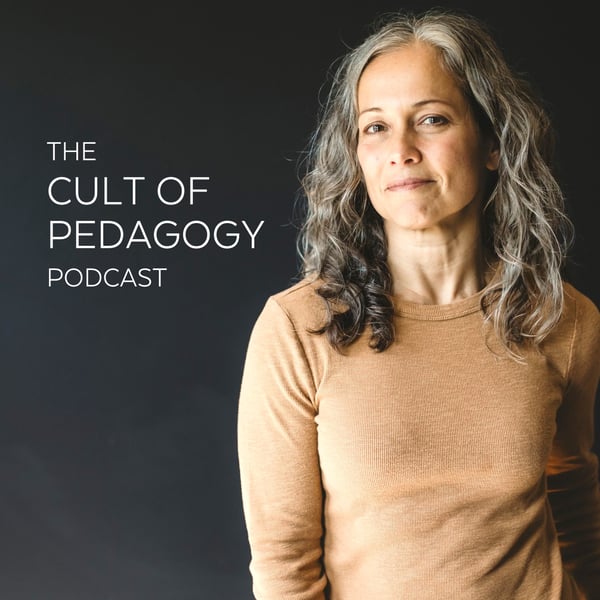260: Seven Teaching Practices that Nurture Student Voice
The Cult of Pedagogy Podcast
Jennifer Gonzalez
4.8 • 2.4K Ratings
🗓️ 29 September 2025
⏱️ 61 minutes
🧾️ Download transcript
Summary
At a time when test-driven reform has quieted student voices and marginalized perspectives are being pushed aside, we need student voice and agency more than ever. In this episode, I'm joined by Shane Safir, Marlo Bagsik, Sawsan Jaber, and Crystal Watson, authors of the new book, Pedagogies of Voice: Street Data and the Path to Student Agency. The book offers a "seed store" of small, replicable classroom practices that help students reflect, speak, and act with purpose. Each of the four authors shares one or two of their favorite practices that teachers can use right away to help students grow into thoughtful, empowered participants in their learning.
______________________________________________________________
Thanks to Solution Tree and Listenwise for sponsoring this episode. For links to the book and a full transcript of this episode, visit cultofpedagogy.com/pod and choose episode 260.
Transcript
Click on a timestamp to play from that location
| 0:00.0 | This is Jennifer Gonzalez, welcoming you to episode 260 of the Cult of Pedagogy podcast. |
| 0:05.0 | In this episode, we'll explore seven teaching practices that nurture student voice. |
| 0:10.0 | In our efforts to improve school, especially in the United States, student voice has really gotten lost. |
| 0:29.2 | We focus on test scores, top-down curriculum, and measures of success that never quite get to the humanity of our students. |
| 0:39.6 | Not only have these efforts not succeeded in raising test scores, they haven't given us much satisfaction in other ways either. In a recent |
| 0:46.5 | survey, nearly half of educators reported that student behavior was worse than before the pandemic, |
| 0:51.4 | and that number had grown since teachers were surveyed just |
| 0:55.2 | two years earlier. Although there are most certainly individual schools where great things are |
| 1:01.6 | happening, too many schools are still missing the mark. Too many schools keep trying to address |
| 1:08.0 | these problems without hearing from the very people who are impacted most, |
| 1:12.9 | the students. But there is another way. Four years ago, I started talking a lot about a new book |
| 1:20.4 | I'd read called Street Data. The book offered an approach to school improvement that was different |
| 1:25.6 | from anything I'd seen before. It focused on having |
| 1:28.8 | slow, thoughtful listening sessions with students at the margins, those whose voices were rarely |
| 1:34.4 | heard and whose needs weren't being consistently met at school. From those sessions, new solutions |
| 1:40.4 | could be developed, piloted, and then iterated and improved on, followed by more |
| 1:45.5 | listening sessions to guide further change. Unlike so many other programs and approaches I'd seen for |
| 1:52.3 | making schools better, many of which are quite expensive to implement, the model outlined by this |
| 1:58.7 | single book seemed like it could actually work. I really wanted |
| 2:02.6 | teachers and school leaders to try it. So I started by having the authors Shane Safier and Jamila |
| 2:08.9 | Dugan on episode 178 of the podcast. Not long after, I offered to produce a mini documentary |
| 2:15.9 | of Shane and Jamila guiding two schools through |
... |
Please login to see the full transcript.
Disclaimer: The podcast and artwork embedded on this page are from Jennifer Gonzalez, and are the property of its owner and not affiliated with or endorsed by Tapesearch.
Generated transcripts are the property of Jennifer Gonzalez and are distributed freely under the Fair Use doctrine. Transcripts generated by Tapesearch are not guaranteed to be accurate.
Copyright © Tapesearch 2026.

